
Hello foodies of the world, today I am happy to share with you an experience full of learning, flavor and above all lots of chocolate.
Some time ago I had the opportunity to attend a chocolate workshop at the Universidad Politécnica Territorial del Estado Mérida “Kléber Ramírez” (UPTMKR) where my cousin was a speaker, since she is an engineer in agri-food and is currently pursuing a master's degree related to cocoa, besides having extensive experience in this area.
Cocoa is the raw material and the main ingredient of thousands of recipes in the world of pastries, desserts and also for some drinks. So when I received his invitation I did not hesitate to sign up.
When I arrived I found a table full of different types of cocoa beans, samples of cocoa fruit and also many samples of finished and processed products in the form of tablets, chocolates and more, including cocoa powder and cocoa liquor. I really enjoyed taking pictures and asking questions of everything that caught my attention.



It was time for the presentation, my cousin did an incredible job and I learned many interesting facts. I did not know, for example, that in the State of Merida cocoa of excellent quality is produced in more than 14 municipalities. Throughout western Venezuela there are different types of cocoa such as the criollo cocoa, the forastero cocoa and the hybrid cocoa that is born from the crossing of these two. This cocoa has unique characteristics in terms of flavor and aroma that stand out in the world.
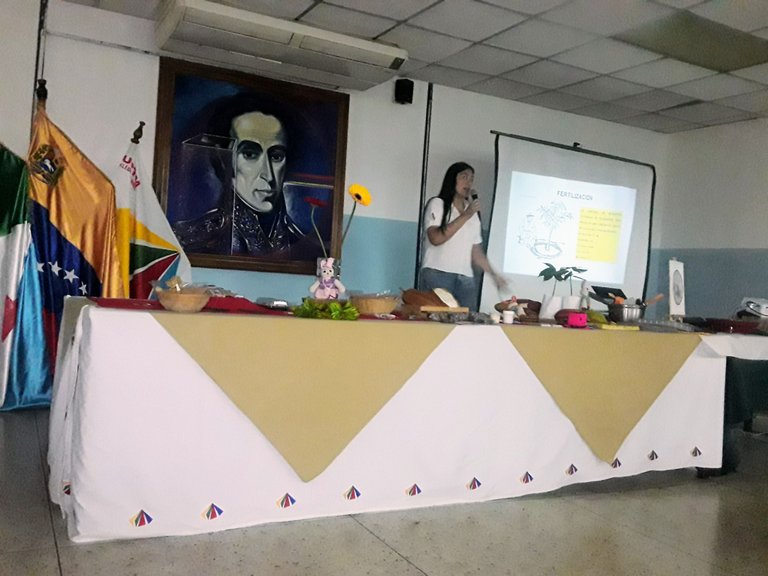

He also made reference to the process of planting, care of the cocoa plant and gave us a demonstration that allows us to distinguish a quality cocoa from one with problems of pests and diseases, as we see in the following photo. Knowing this is important when choosing our ingredients or raw material for any preparation. We know that the quality of the ingredients greatly influences the flavor and texture of our food, in addition to the nutritional contribution.

After the theoretical presentations that were really interesting, it was time for the practical demonstration of how they process cocoa and produce artisan chocolate, following a trend called “Bean To Bar”, which means: From the bean to the bar or cup of chocolate.
They started by selecting the cocoa bean, eliminating split beans, with impurities, flattened beans, leaving only uniform and healthy beans.
They roasted the beans, in this case, on an electric stove, for about 20 minutes at about 120 °C. The beans begin to loosen their husks. Roasting also brings out the flavor and aroma. The whole room smelled delicious.

Then it is left to rest and the shelling process begins. They remove all the shells manually, as you can see in the first picture of the following collage. Of course, for large quantities there are special machines, where the cocoa almonds are obtained already roasted.
An interesting point is that it is at this point, where it is defined in what can be used according to the color of the bean, something that is obtained with experience and practice. What I understood is that the lighter the almond, the more criollo the cocoa is; therefore, it is sweeter and tastier.
Then the beans are ground in a traditional mill like the ones used for coffee and the cocoa liquor or paste is obtained. Here I was surprised, I expected the cocoa powder to come out and it actually comes out liquid, thanks to the fat that this seed has. Then it is taken to a press and the butter is extracted.
From a kilo of seeds a 700 gr tablet is obtained, a yield of 70%, but this depends on the quality of the bean.
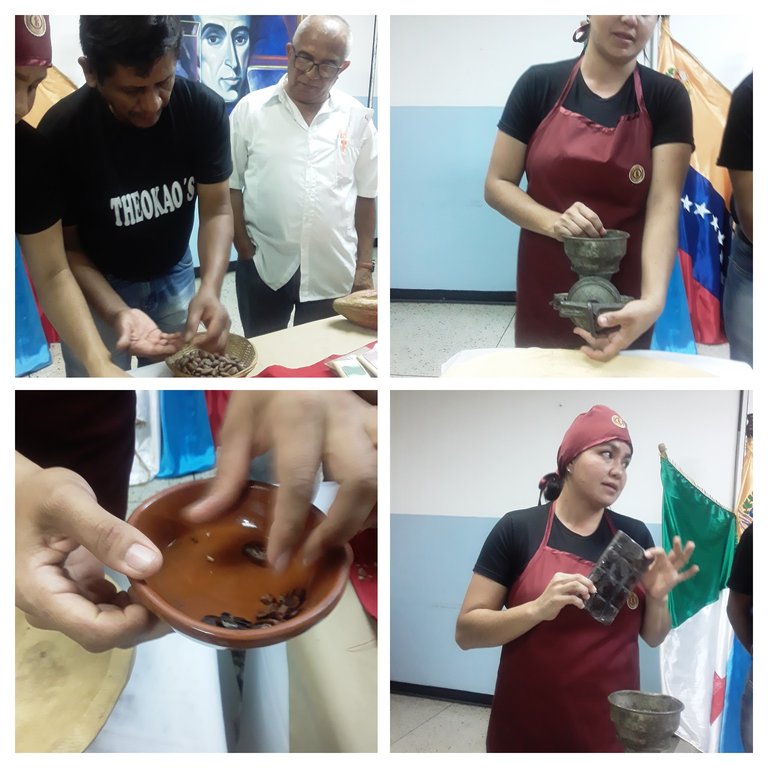
From the pressing process the cocoa butter and cocoa powder are obtained. This is carried out at a specific temperature, according to the chocolate we want to obtain to make it firmer, with more shine and uniform color.

We were given a sample of a 70% bean to bar chocolate. This chocolate, which dissolved in the mouth by itself and had an incredible smell with an intense flavor, plus the presentation in the shape of a diamond heart, I loved it. But it had a small detail and that is that some spots are noticeable and this was because it was not tempered, so it is very important this last phase of the process that is a process that must be done with calm, patience and love.

The percentage of cocoa in the chocolate indicates how pure the product is. Here we have three samples, one at 55%, 80% and 35%. We can see that white chocolate has the least amount of cocoa and the highest amount of fats, sugars and milk. While the cup chocolate is purer, 80% cocoa liquor and 20% sugar and cocoa butter.

I loved this workshop and left me curious to learn more about the world of chocolate. Of course, I took home several samples to share with the family and continue enjoying a very chocolaty day.


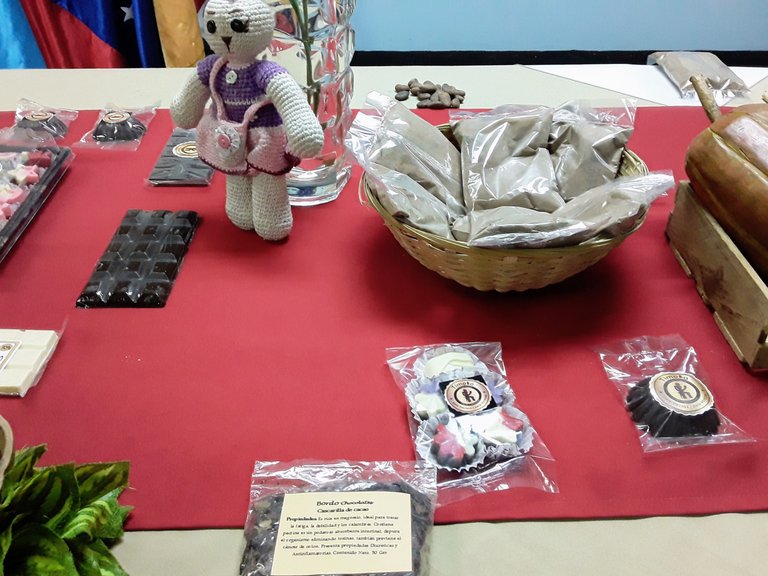


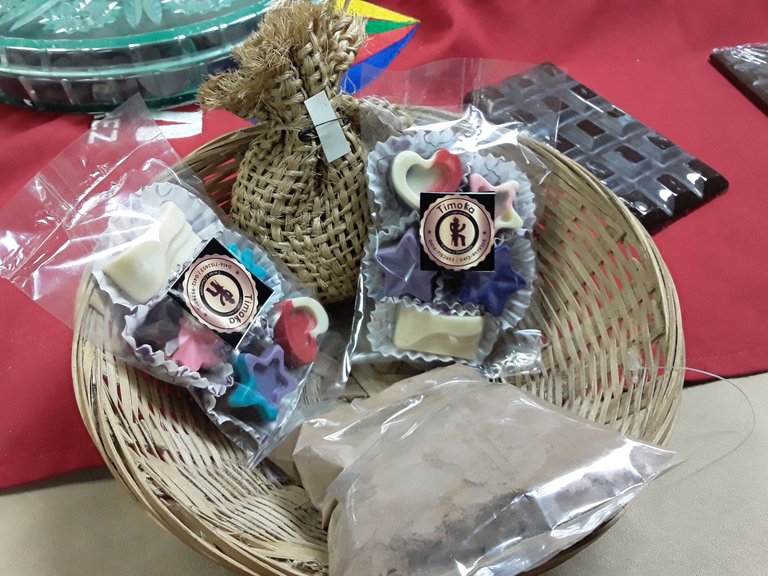




Hola foodies del mundo, hoy estoy feliz de compartir con ustedes una experiencia llena de aprendizaje, sabor y sobre todo mucho chocolate.
Hace un tiempo tuve la oportunidad de asistir a un taller de chocolatería en la Universidad Politécnica Territorial del Estado Mérida "Kléber Ramírez" (UPTMKR) donde mi prima fue ponente, ya que ella es ingeniero en agroalimentación y actualmente se encuentra realizando una maestría relacionada con el cacao, además de tener una amplia experiencia en este rubro.
El cacao es la materia prima y el principal ingrediente de miles de recetas del mundo de la repostería, postres y también para algunas bebidas. Así que cuando recibí su invitación no dudé en inscribirme.
Al llegar me encontré con una mesa llena de distintos tipos de semillas de cacao, muestras de su fruto y también muchas muestras de productos ya terminados y procesados en forma de tabletas, bombones y más, incluyendo cacao en polvo y licor de cacao. Disfruté mucho tomando fotografías y haciendo preguntas de todo lo que llamaba mi atención.



Llego el momento de la ponencia, mi prima, lo hizo increíble y aprendí muchos datos interesantes. No sabía, por ejemplo, que en el Estado Mérida se produce cacao de excelente calidad en más de 14 municipios. En todo el occidente de Venezuela se encuentran diversos tipos de cacao como el cacao criollo, el cacao forastero y el cacao híbrido que nace del cruce de estos dos. Este cacao tiene características únicas en cuanto a sabor y aroma que destacan en el mundo.


También hizo referencia al proceso de siembra, cuidado de la planta de cacao y nos hizo una demostración que nos permite distinguir de un cacao de calidad a uno con problemas de plagas y enfermedades, como el que vemos en la siguiente foto. Conocer esto es importante al momento de elegir nuestros ingredientes o nuestra materia prima para cualquier preparación. Sabemos que la calidad de los ingredientes influye mucho en el sabor y textura de nuestras comidas, además del aporte nutricional.

Después de las presentaciones teóricas que estaban realmente interesantes, llegó el momento de la demostración práctica de cómo procesan el cacao y producen el chocolate artesanal, siguiendo una tendencia que se llama "Bean To Bar", que significa: Del grano a la tableta o la taza de chocolate.
Comenzaron seleccionando el grano de cacao, eliminando granos partidos, con impurezas, granos aplanados, dejando solo granos uniformes y sanos.
Tostaron el grano, en este caso, en una cocina eléctrica, alrededor de 20 minutos a unos 120 °C. El grano comienza a soltar la cáscara. Con el tostado se logra también resaltar el sabor y el aroma. Todo el salón olía delicioso.

Después se deja reposar y se comienza el proceso de descascarillado. Retiran todas las cáscaras de forma manual, como ven en la primera foto del siguiente collage. Por supuesto que para grandes cantidades existen máquinas especiales, donde se obtienen las almendras de cacao ya tostadas.
Un punto interesante es que es en este momento, donde se define en qué puede usarse de acuerdo al color del grano, algo que se obtiene con la experiencia y la practica. Lo que entendí es que mientras más clara sea la almendra, el cacao es más criollo; por lo tanto, es más dulce y más sabroso.
Después se muelen los granos en un molino tradicional como los que usan para el café y se obtiene el licor o pasta de cacao. Aquí me sorprendí, esperaba que saliera el cacao en polvo y en realidad sale líquido, gracias a la grasa que tiene esta semilla. Luego se lleva a una prensa y extraen la manteca.
De un kilo de semillas se obtienen una tableta de 700 gr, un rendimiento de 70%, pero esto depende de la calidad del grano.

Del proceso de prensado se obtiene la manteca y el cacao en polvo. Esto se lleva a una temperatura específica, de acuerdo con el chocolate que queremos conseguir para que sea más firme, con más brillo y de color uniforme.

Nos obsequiaron una muestra de un chocolate bean to bar, al 70%. Este chocolate, que se disolvía en la boca por sí solo y tenía un olor increíble con un sabor intenso, además de que la presentación en forma de corazón diamantado, me encantó. Pero tenía un pequeño detalle y es que se notan algunas manchas y esto fue porque no se temperó, por lo que es muy importante esta última fase del proceso que es un proceso que debe hacerse con calma, paciencia y amor.

El porcentaje de cacao en el chocolate nos indica que tan puro es el producto. Aquí tenemos tres muestras, una al 55%, 80% y 35%. Vemos que el blanco es el que tiene menos cantidad de cacao y mayor cantidad de grasas, azúcares y leche. Mientras que el chocolate para taza es más puro, 80% licor de cacao y 20% azúcar y manteca de cacao.

Este taller me encantó y dejó en mí la curiosidad para aprender más a fondo acerca del mundo de la chocolatería. Por supuesto, que me llevé varias muestras a casa, para compartir con la familia y seguir disfrutando de un día bastante achocolatado.








Until next time, a million blessings to your families.
Hasta la próxima, un millón de bendiciones a sus familias.
Translation: DeepL
Images: @doriangel
Edition: Canva(Free resources and templates)
Traducción: DeepL
Imágenes: @doriangel
Edición: Canva(Recursos y plantillas gratuitas)
Special credits to UPTMKR, Chocolates Carmar, Theo Kaos, Eng. Diana Gutiérrez, Eng. Luis Contreras and all the workshop speakers for sharing their knowledge.
Créditos especiales a la UPTMKR, Chocolates Casmar, Theo Kaos, a la Ing, Diana Gutiérrez, al Ing Luis Contreras y a todos los ponentes del taller por compartir sus conocimientos.
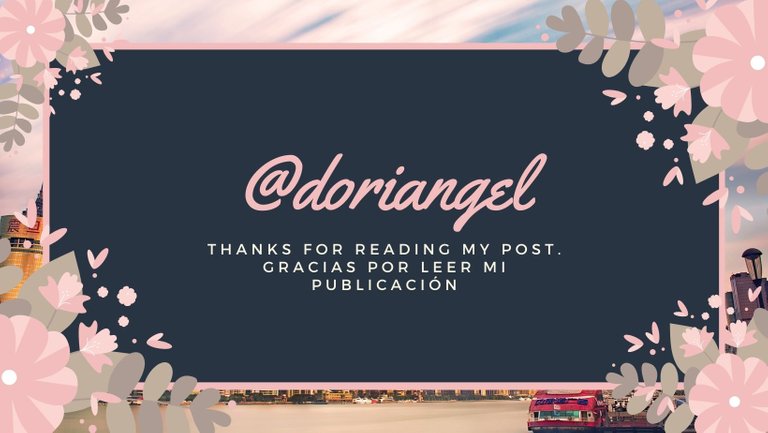
Posted Using INLEO

